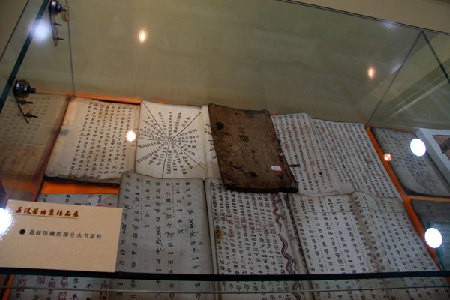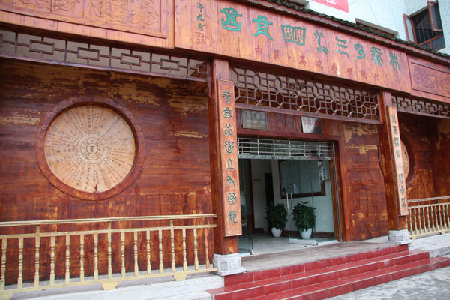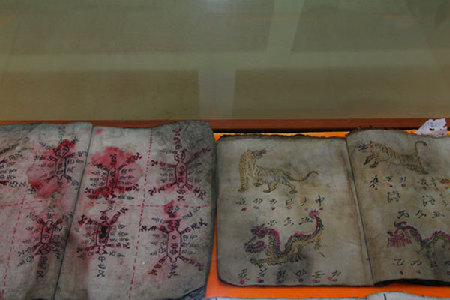Shui books face an uncertain future
As one of the 17 minority groups who still follow a unique lifestyle in China nowadays, the Shui people of southwest China are noted for their distinctive treasures, most intriguing of which are their ancient and mysterious Shui Books. Today, however, the books' future is uncertain for a variety of reasons.
 |
|
Shui chatacters decorate the entrance of the China Shui Books Museum, in Libo County, southern Guizhou. [Photo: CRIENGLISH.com] |
The archives are stored at Libo in southern Guizhou Province, home to 40,000 Shui, about one tenth of their entire population in China.
Yao Binglie, curator of the Libo Archives and head of the Shui Minority Culture Research Center, says the books recorded a comprehensive system of astronomy, geography, folk customs, ethics, philosophy as well as law and religion.
"It comprises three parts: the characters, the books written with the characters and the oral words passed down from generation to generation," says Yao.
Wu Liping, a Shui girl, can speak their dialect fluently but cannot read the characters. She says not even her father and mother are able to read, only her grandfather.
"I don't understand the language. It's not like Han characters which can be written according to an alphabet. The characters have too many multi-pronunciation options and multi-meanings."
The reason for her difficulty is that the Shui believe that only smart boys of good character can be taught their words, which take at least 10 years to fully learn.
 |
|
Original copies of Shui books are on display at the Libo Shui Books Museum, in southern Guizhou. [Photo: CRIENGLISH.com] |
If learning Shui Characters is hard, creating the archives was even tougher, said Yao, adding that the 9,217 copies of Shui Books currently stored were donated or bought from local Shui people from 2002 to 2008.
He says the situation is grim. "In the past two years, it's become more and more difficult to persuade local Shui people to give their collections to the archives, since vendors at tourism resorts offer hundreds of Yuan for them, while we can only offer a small amount."
Yao believes there are about 3,000 original Shui Books scattered around the community at present and he is calling for government support to collect and preserve them.
"We want to translate them and conduct research on them but the lack of funds has really been a great obstacle," he says.
In June 2006, the Shui archive was listed as an item of national heritage, along with the Shui Minority's Duan Festival and Mawei embroidery.
Yao Binglie still has some hope for the future. "The Shui books reflect the unique culture of the Shui Minority and the vital energy that has endured thousands of years," he says. "As long as more and more people realize the value of it, our descendents will take up the baton, even if our generation cannot finish the work."

















